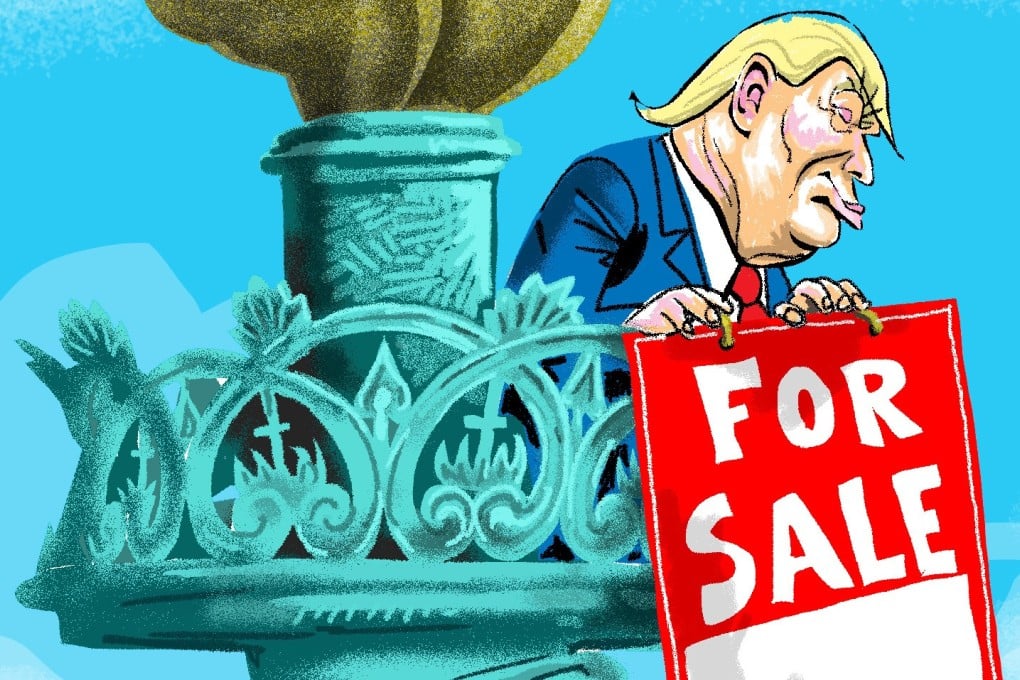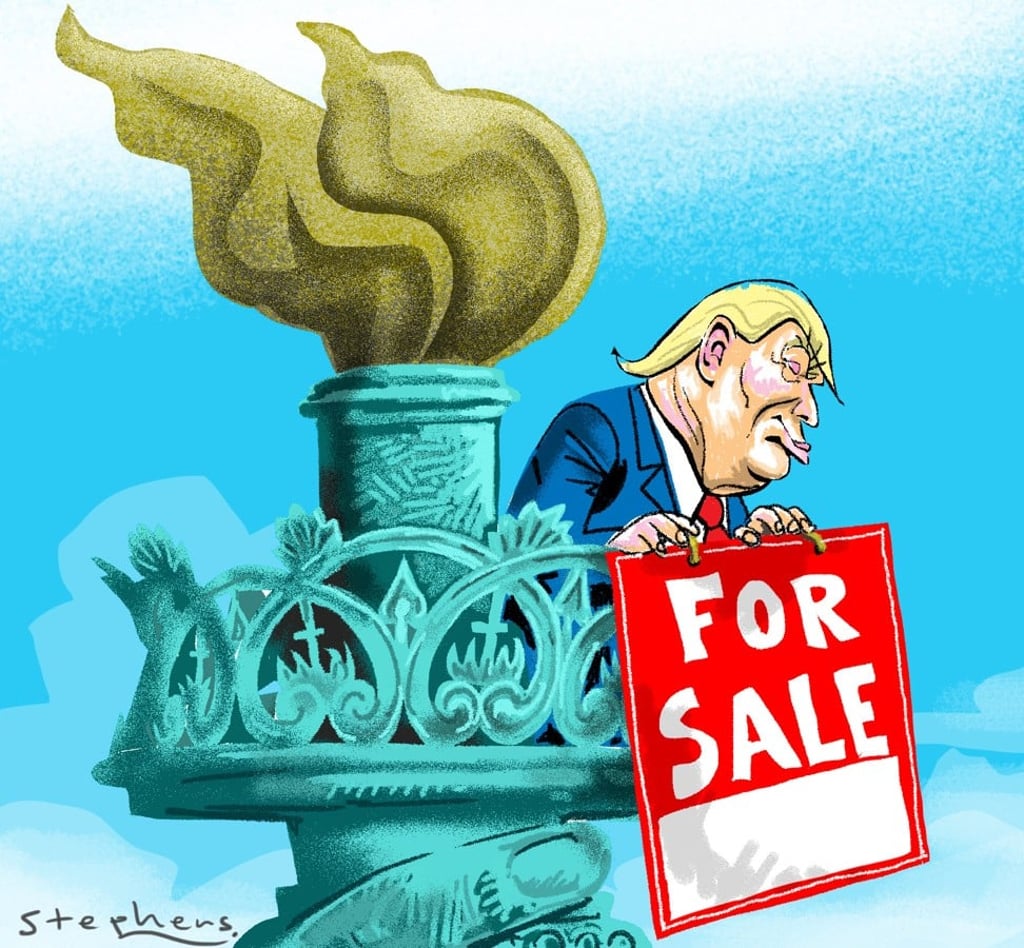How Donald Trump betrayed American values and Jeffersonian legacy with trip to Saudi Arabia
Patrick Mendis says the transactional president is undermining US democratic ideals with his economic determinism, as seen in his closeness to the Saudi kingdom, which he previously condemned as a top funder of terrorism

Watch: Trump joins Saudi sword dance
Saudi Arabia has for years been considered one of the worst human rights offenders. The disoriented White House has thus mistakenly transmitted the exact antithesis of American values on religious freedom, human rights, democracy and personal liberty that would emphasise the country’s moral vision and current standing in the world.
Trump, a former businessman, is a transactional leader as opposed to a transformational one. The Trump White House, with political operatives as his brain trust, is a hodgepodge of short-term tacticians, neither fully immersed in US history nor in international affairs. Their policies appear to be measured in pure financial terms.
Remember Nixon? There’s history behind Trump’s press attacks
The foundation of American primacy has, however, derived from the reflective actions of “transformational” leaders like Franklin Roosevelt, Harry Truman and Ronald Reagan.
